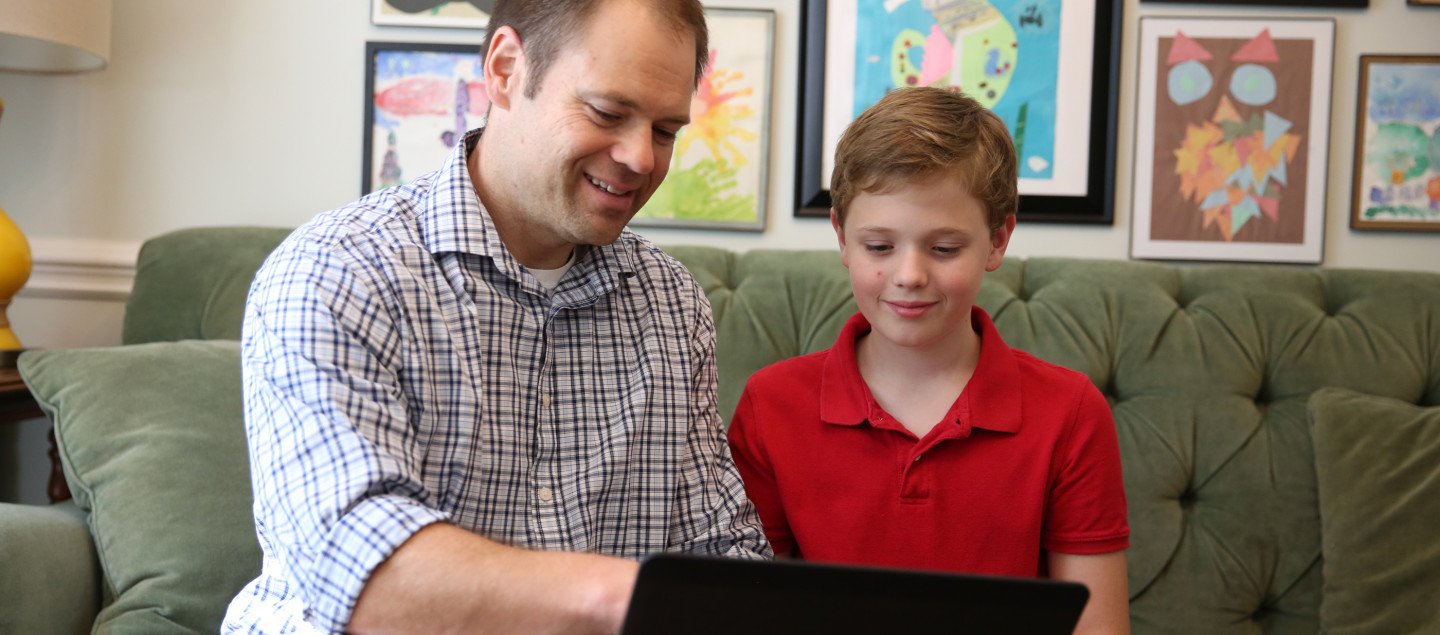FACS expert offers advice to ease back-to-school anxiety

First-day jitters are common, but students returning to school this year during the COVID-19 pandemic will face all sorts of unknowns that could lead to heightened anxiety.
“School is going to look very different this year, from increased handwashing to masks to social distancing,” said University of Georgia Cooperative Extension child development specialist Diane Bales. “All of the typical concerns like not having a routine and not knowing your teachers will be magnified this year.”
With so many changes and unknowns, it’s important for parents to reassure their children that anxiety is normal, Bales said.
“Encourage kids to talk about their concerns,” said Bales, associate professor in the UGA College of Family and Consumer Sciences. “If they’re excited about going back but anxious and nervous about having to wear a mask, let them know that all those feelings are valid and normal. Talking about their concerns can help them feel better.”
Knowing what to expect can also help to reduce anxiety, Bales said. With that in mind, she urged parents to find out as much as they can about their child’s daily schedule and routine in advance.
“Preparing to whatever degree you can before the first day of school is going to reduce some anxiety and make the school day more successful,” Bales said. “Kids will engage more completely and not be overwhelmed with anxiety.”
To illustrate this point, Bales often asks her students to recall their own first day of school, and then asks them to recall their 38th day of school.
“Everybody laughs,” she said. “By the time you get to your 38th day of school, you know your routine and schedule and everything is normal. It has a lot do with having that consistency and predictability. It also gives kids confidence when they know what to expect.”
Bales noted it’s a good idea to “practice” going over the new guidelines at home before school starts.
For example, measure off 6 feet of distance in your house to help your child visualize the social distancing rules, and practice wearing a mask.
“I’d start with 10 to 15 minutes a day and build up to longer periods of time wearing the mask,” she said. “Getting the routine down before school starts is important.”
For younger kids, Bales suggested that parents who pack lunches make sure items are easy to open since it may not be feasible for teachers or administrators to help at lunchtime due to social distancing.
Parents should also remind their children not to share common items such as pencils and paper.
“We normally teach kids to share, but right now, that could be less safe in terms of spreading germs,” Bales said. “For now it’s probably important to not share items and to keep up with our own things.”
Bales stressed that parents should remind their children why the safety measures being put in place to prevent the spread of the virus are important.
“Prepare them without overwhelming them or giving them too much information,” she said. “Remind them that the goal is to keep everybody healthy.”
To learn more about child and family development from UGA Extension experts, visit extension.uga.edu
In this category: Family
-
Multidisciplinary FACS team receives $6.1 million grant to aid Georgia families
Elevate Couples Georgia team seeks to deliver Healthy Marriage and Relationship Education program to 1,300 couples

-
Kogan recognized for advancing family-centered prevention science
Professor honored by Society of Prevention Research for decades of work related to families

-
Geier named college’s first associate dean for research
HDFS professor will enhance college's research infrastructure

-
Hargrove named assistant director of UGA Love and Money Center
Licensed marriage and family therapist will teach graduate-level courses and lead outreach efforts

-
Lack of sleep disrupts key brain functions in adolescents
More sleep could protect children’s mental health
